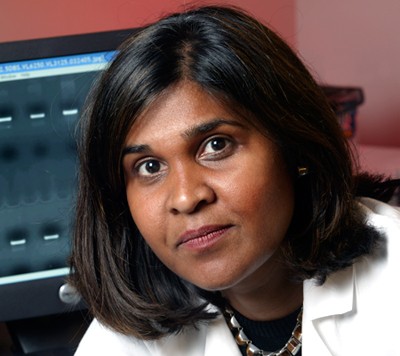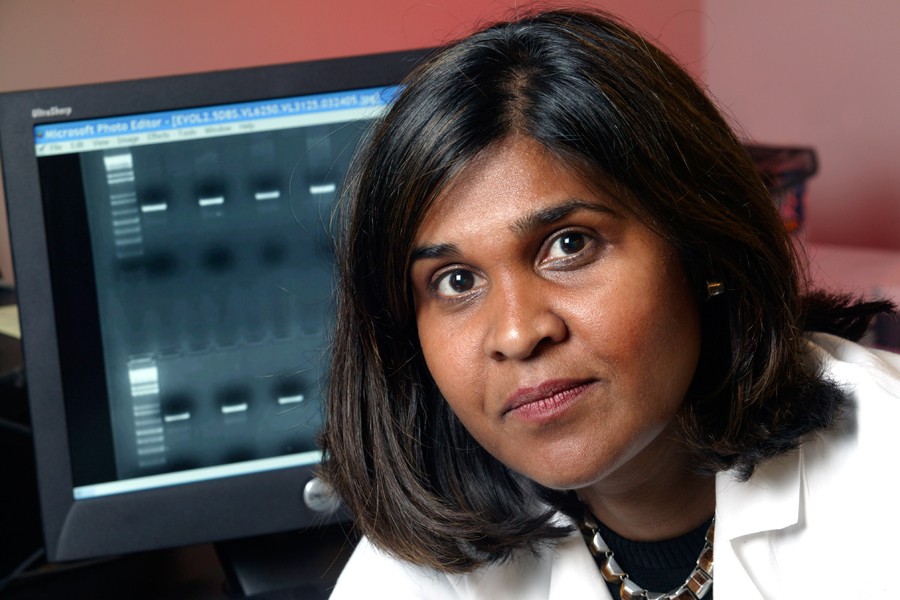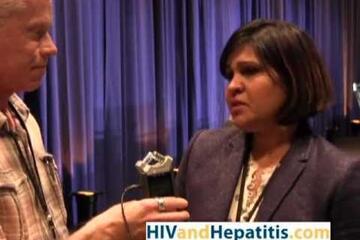A team of researchers from Johns Hopkins Children's Center, the University of Mississippi Medical Center, and the University of Massachusetts Medical School describe the first case of a so-called "functional cure" in an HIV-infected infant. The finding, the investigators say, may help pave the way to eliminating HIV infection in children.

Image caption: Virologist Deborah Persaud
The infant described in the report underwent remission of HIV infection after receiving antiretroviral therapy within 30 hours of birth. The investigators say the prompt administration of antiviral treatment likely led to this infant's cure by halting the formation of hard-to-treat viral reservoirs—dormant cells responsible for reigniting the infection in most HIV patients within weeks of stopping therapy.
A report on the case was presented Sunday at the 20th Conference on Retroviruses and Opportunistic Infections (CROI) in Atlanta. Johns Hopkins Children's Center virologist Deborah Persaud, lead author on the report, and University of Massachusetts Medical School immunologist Katherine Luzuriaga, headed a team of laboratory investigators. Pediatric HIV specialist Hannah Gay, M.D., associate professor of pediatrics at the University of Mississippi Medical Center, provided treatment to the baby.
"Prompt antiviral therapy in newborns that begins within days of exposure may help infants clear the virus and achieve long-term remission without lifelong treatment by preventing such viral hideouts from forming in the first place," Persaud says.
The researchers say they believe this is precisely what happened in the child described in the report. That infant is now deemed "functionally cured," a condition that occurs when a patient achieves and maintains long-term viral remission without lifelong treatment and standard clinical tests fail to detect HIV replication in the blood.
The child described in the current report was born to an HIV-infected mother and received combination antiretroviral treatment beginning 30 hours after birth. A series of tests showed progressively diminishing viral presence in the infant's blood, until it reached undetectable levels 29 days after birth. The infant remained on antivirals until 18 months of age, at which point the child was lost to follow-up for a while and, the researchers say, stopped treatment. Ten months after discontinuation of treatment, the child underwent repeated standard blood tests, none of which detected HIV presence in the blood. Test for HIV-specific antibodies—the standard clinical indicator of HIV infection—also remained negative throughout.
"Our next step is to find out if this is a highly unusual response to very early antiretroviral therapy or something we can actually replicate in other high-risk newborns," Persaud says.
Read more from Johns Hopkins Children's CenterPosted in Health, Science+Technology
Tagged pediatrics, hiv/aids, johns hopkins children's center, deborah persaud









